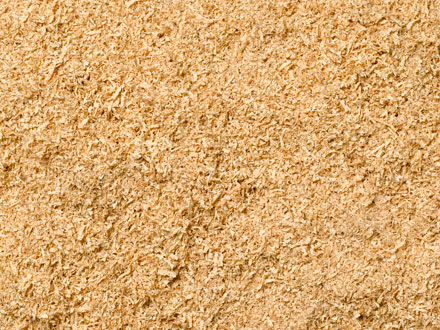
Chicken farmers across Victoria fear the cost of producing chicken meat will escalate if Australian Sustainable Hardwoods’ timber mill closes at Heyfield. Source: Weekly Times
As a byproduct of timber processing, sawdust and wood shavings from the mill are the major source of bedding for Victoria’s broiler sheds, and other animal industries.
The chicken industry is on an economic knife-edge,” Victorian Farmers Federation spokesman Allan Bullen said. “It’s not a pretty picture where we’re sitting. (If the mill closes) it is the processors and growers who will wear the costs. The supermarkets won’t pass it on to consumers.”
Mr Bullen said chicken bedding, or litter, was one of the biggest expenses for farmers and estimated his Mornington Peninsula farm would use 60 semi-trailer loads of bedding each year.
“That’s $85,000 worth, and I’m only one farmer,” Mr Bullen said. If the mill closes, an alternative bedding material would need to be found, with rice hulls one likely option, when the rice season permits. However, the transport cost alone would be prohibitive for farmers such as Mr Bullen, who expects delivery of litter to farms could more than double.
“We could probably get the rice hulls, the closest (rice mill) is Deniliquin, so it adds huge transport costs … it might be an extra $800 per truck,” he said.
Last month ASH directors warned mill workers it would close this year if adequate timber supply could not be guaranteed by State Government-owned VicForests.
ASH agreed to put the closure on hold while the Government considered how hundreds of jobs associated with the mill, and downstream industries, might be saved. But The Weekly Times understands little consideration had been given to what impact the closure would have on the chicken industry until Mr Bullen met senior department staff last week.
He said chicken litter was hard to source because it must meet strict biosecurity regulations and Quality Assurance standards.
“It is disease-free, no chemicals, it is perfect,” he said of the Heyfield byproduct, which, after use is often removed and used in fertiliser products.
Last year, ASH sold more than 100,000 cubic metres of sawdust and wood shavings to Shandley’s Transport for use in animal bedding.
Company spokesman David Shandley estimated the Dandenong-based company supplied the bedding for 75% of Victoria’s broiler industry.
“Because it’s locally sourced it keeps the Victorian chicken industry competitive,” Mr Shandley said. “We supply up to 250,000 cubic metres per year to the chicken industry, with Heyfield providing up to 150,000 cubic metres. It’s definitely the preferred product.”
Mr Shandley said farmers had strict requirements for the litter, which must be free of toxins and stored in rodent and bird-free facilities in order to meet PrimeSafe approval and RSPCA certification.
He expected rice hulls would be the most likely alternative should the sawdust not be available.
“I expect that would drive the price up $5 per metre, with some sheds taking up to 180 metres five or six times a year,” he said. “It’s a stressful time, not knowing what’s going to happen with the litter supply.”
Compounding the issue is the increased costs of establishing or expanding a chicken farm in Victoria.
“We consume 160 million chickens a year in Victoria, but we’re only growing 138 million,” Mr Bullen said.
“While the industry grew at 10% nationally last year, we haven’t seen that here.
“I hate to say it, but Victoria is a dear place to do business.”
He said land prices made it expensive to operate. He said a Victorian broiler property might cost $2 million, but the same land in South Australia could sell for $450,000 or $500,000.
Mr Shandley said the community was oblivious to the size of the chicken meat industry.
“There’s 8500 people employed in the chicken industry in Victoria and at the moment it is under threat from other states,” he said. “This is not all about Heyfield. It would be detrimental to us and the chicken industry if Heyfield closes.
“You’re not just going to impact the forestry sector or towns in East Gippsland, you’re going to affect the whole chicken industry and push it out of Victoria.”
Agriculture Minister Jaala Pulford would not comment on the potential impact the mill’s closure would have on the chicken meat industry.
“The Government has been having constructive discussions with Australian Sustainable Hardwoods, workers and the CFMEU,” a Government spokesman said. “Work to identify a viable future for the Heyfield mill is ongoing.”







